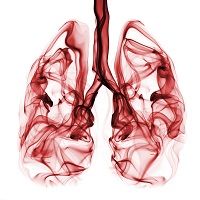Article
Lung Cancer Tumor Biopsies Can Be Replaced with Blood Samples
Author(s):
Blood samples can substitute for tumor biopsies for lung cancer patients, according to findings published in JAMA Oncology.

For lung cancer patients, blood samples can substitute for tumor biopsies, according to research published in JAMA Oncology.
Researchers from the Hospital Germans Trias I Pujol in Badalona, Spain examined epidermal growth factor receptor (EGFR) mutations in circulating free DNA (cfDNA) isolated from 97 baseline blood samples in order to assess the ability of using cfDNA as a surrogate for tumor biopsy. The researchers took blood samples from patients with advanced non-small cell lung cancer (NSCLC) as a surrogate for tumor biopsies to determine the EGFR mutations, and then correlated those results with expected patient outcomes. The study came about as a secondary objective of the EURTAC trial, which set out to examine the efficacy of erlotinib compared with standard chemotherapy for first-line treatment for European patients with advanced NSCLC with oncogenic EGFR mutations, known as exon 19 deletion or L858R mutations in exon 21 in the tumor tissue.
The researchers found that in 76 of the 97 samples (78 percent) from patients, EGFR mutations in cfDNA were detected. Patients with the L858R mutation in cfDNA demonstrated a shorter median overall survival than patients with the exon 19 deletion (13.7 months compared to 30 months). The patients with L858R mutation in the tissue or the cfDNA survived for a median overall length of 13.7 months. Patients without the L858R mutation detected in the cfDNA survived for an overall median of 27.7 months. There were 76 patients with EGFR mutations in the cfDNA and in those patients, only erlotinib treatment was an independent predictor of longer disease progression free survival, the researchers said.
“Testing of tumor tissue remains the recommended method for detecting the presence of oncogenic EGFR mutations; however, the amount of tumor tissue obtained by biopsy is often insufficient, especially in advanced NSCLC, raising the question of whether cfDNA may be used as a surrogate liquid biopsy for the noninvasive assessment of EGFR mutations,” the authors concluded.
In an accompanying editorial, authors from the Washington University School of Medicine in St. Louis and Yale Medical School commented that cfDNA mutations could potentially identify populations of patients who are likely to have worse or better outcomes and who may need alternative treatments.
“The updated EURTAC study demonstrates that mutations detected in cfDNA are prognostic and consistent with data obtained from tumor biopsies,” the editorialists wrote. “More broadly, the potential benefits of liquid biopsies include a better evaluation of the tumor genome landscape with the identification of a comprehensive set of targetable mutations and the serial noninvasive monitoring, which may allow the detection of additional mutations from emerging subclones, including those involved in the development of acquired resistance.”





